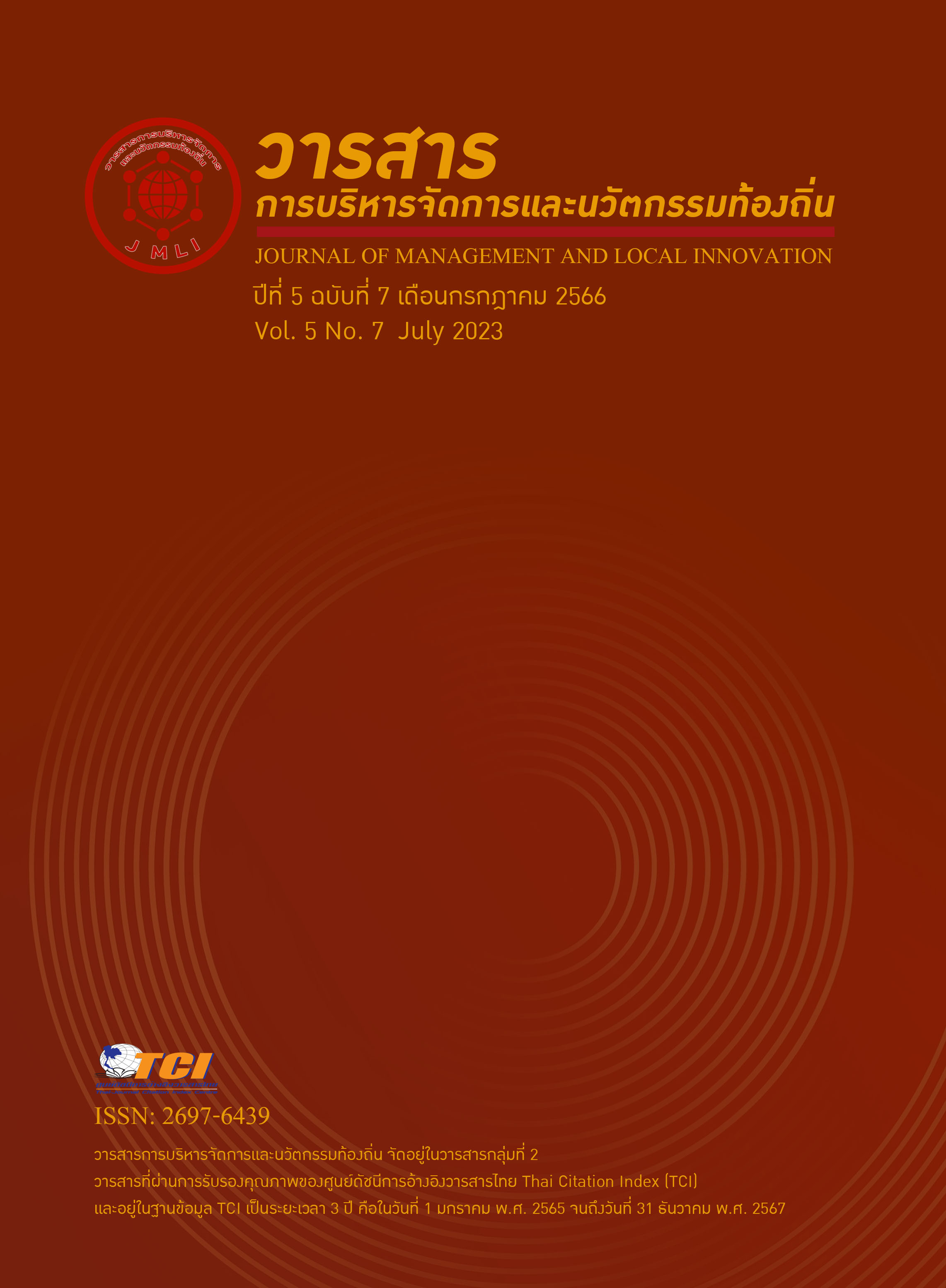The Development of Blended Learning Activities with the concept of Model Eliciting Activities to Promote Mathematical Problem - Solving Ability for 7th Graders
Keywords:
Blended Learning, Concept of Model Eliciting, Activities Mathematical Problem - Solving AbilityAbstract
This research aimed to study as follows: 1) To create and evaluate the efficiency of blended learning activities using the concept of Model Eliciting Activities to promote mathematical problem – solving ability for 7th graders that had the efficiency criteria ( E1/E2) at 75/75. 2) To compare the ability of mathematical problem – solving with blended learning features of the pretest - posttest comparison; manipulating the Model Eliciting Activities for 7th graders, carrying out research into Research and Development (R&D) Process. This was a purposive sampling, 34 students studying in 7th grade, semester 2, academic year 2022, Watcharawittaya School, The Secondary Educational Service Area Office Kamphaeng-Phet (SESAOKPP) were eligible as the sample group. Herein, the research instruments were included as follows: 1) Blended learning activities with the concept of Model Eliciting Activities in order to promote mathematical problem – solving ability for 7th graders. 2) Numerical reasoning test. Four mains statistical methods were used in data analysis: mean, standard deviation, percentage, and dependent t-test.
Results can be split into two sections: The results on the blended learning activities with the concept of Model Eliciting Activities for 7th graders were developed into four steps as follows: Step 1: Online learning, Step 2: Face-to-face Mathematical Problem - Solving, Step 3: sharing educational outcomes with online classmates and Step 4: online assessment. Activities were engaged at the highest level and had the efficiency results ( E1/E2) at 78.09/75.37, which meets the criteria set. The second section of results revealed that 7th graders were able to solve mathematical problems after learning with blended learning activities using the concept of Model Eliciting Activities, which were higher than pretest results. A statistically significant test result was at the .05 (p = 0.5).


